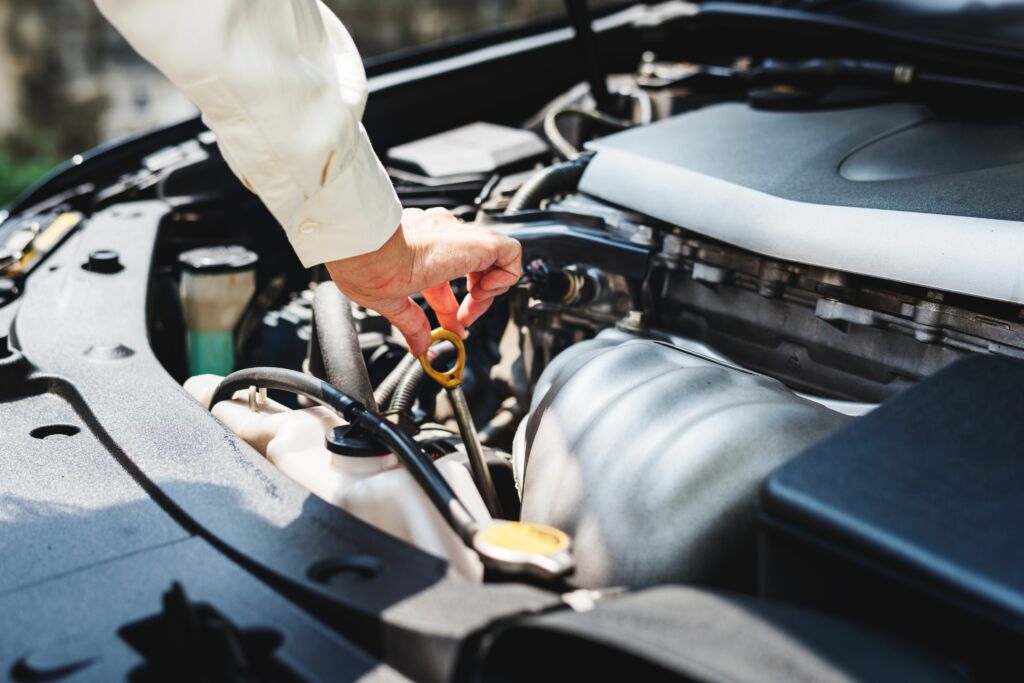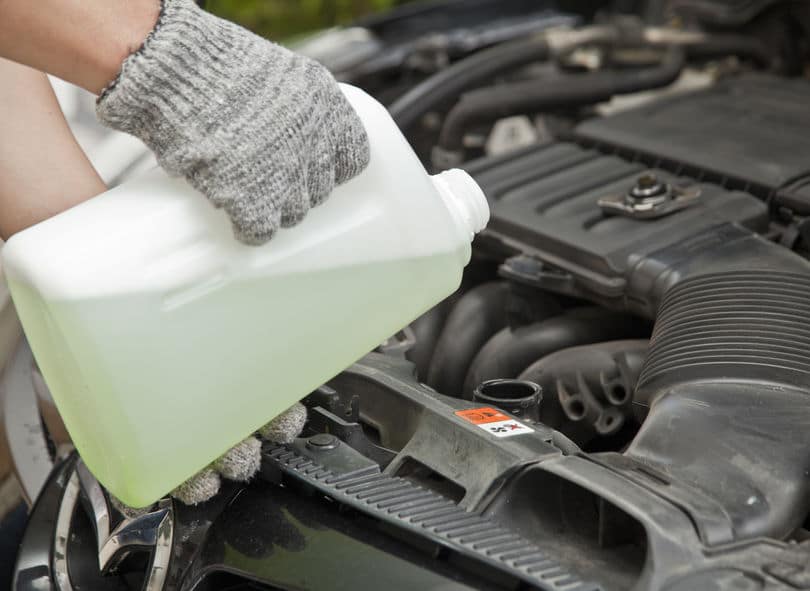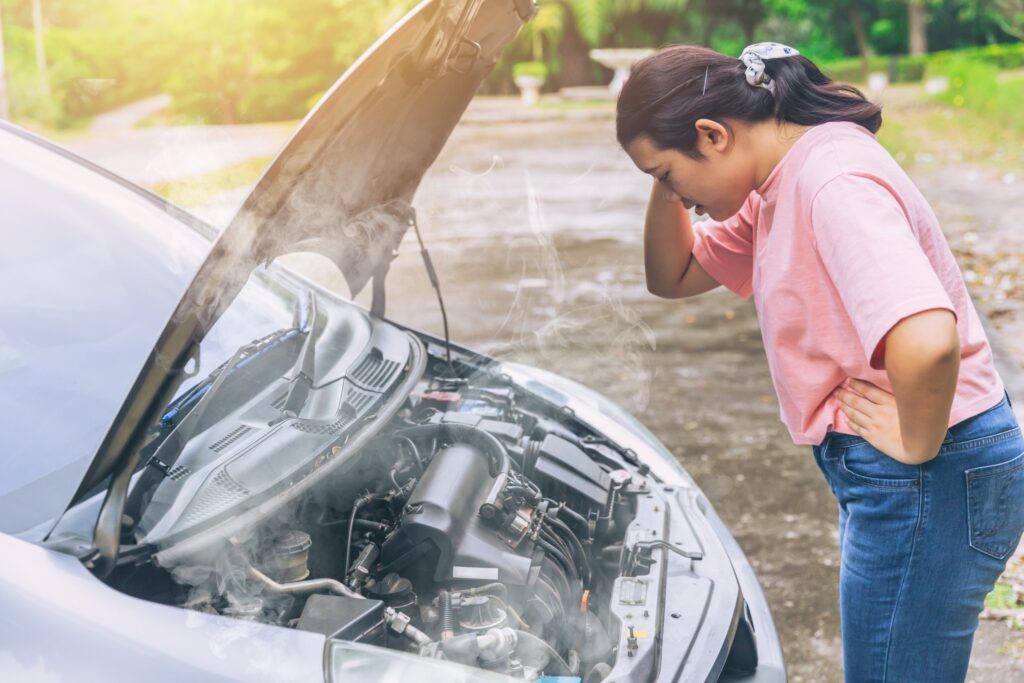Few driving experiences are as alarming as seeing your car’s temperature gauge spike into the red out of nowhere. Catching your car overheating isn’t just inconvenient—but it can lead to serious engine damage if not addressed quickly. In an unexpected situation, it’s important to remain calm get yourself to safety, and protect your vehicle.
Here at Statewide Wrecker Service, we care about your safety, so here is a step-by-step guide on handling your car overheating on the road!
Why is My Car Overheating?
During the summer, the risk of car overheating increases significantly. This issue can arise due to various factors, with the most common being the car’s age, overall condition, and coolant levels. To prevent overheating, regularly monitor your tire pressure, lift the car for inspections as needed, and ensure the coolant reservoir is topped off when levels are low. On hot days, keep the windows closed to minimize heat buildup inside the vehicle. If your car shows signs of overheating, it’s crucial to take it to a mechanic right away!
Typically, this situation involves issues with the cooling system or engine. Here are a few common causes for a car overheating:
- Low Coolant Levels: Insufficient coolant can prevent proper heat dissipation, causing the engine to overheat.
- Leaking Cooling System: Leaks in the radiator, hoses, or water pump can lead to a loss of coolant.
- Malfunctioning Thermostat: A stuck thermostat can prevent coolant from circulating through the engine.
- Faulty Water Pump: If the water pump fails, coolant can’t circulate effectively, leading to overheating.
- Blocked Radiator: Debris or sediment buildup can block the radiator, reducing its ability to cool the engine.
- Broken Radiator Fan: If the fan isn’t working, it can’t help dissipate heat from the radiator, especially at low speeds or idle.
Other Symptoms of Your Car Overheating:
- The temperature gauge shows a high reading even when the car is parked in a cool location.
- White smoke is visible from under the hood or coming from the tailpipe.
- The car idles excessively or stutters.
- A strong smell of coolant or burning oil is present.
- Coolant is leaking from the radiator fan or a nearby water pump.
- A banging noise is coming from the engine compartment.
- Overheating issues occur suddenly and without warning.
Step-By-Step Guide On How to Handle Your Car Overheating

1. Turn Off the Air Conditioning and Turn On the Heater
If you notice your car’s temperature gauge rising or steam coming from the engine, the first thing you should do is turn off the air conditioning. This reduces the load on the engine. Then, turn on the heater to maximum power.
This might sound counterintuitive, especially on a blistering hot day, but it will help draw excess heat away from the engine into the cabin, giving it a bit of a breather.
2. Pull Over Safely
As soon as it’s safe, pull over to the side of the road. Continuing to drive with an overheating engine can cause severe damage, so find a safe place to stop. If you’re on a busy road, try to pull over to a rest area, parking lot, or a wide shoulder.
3. Turn Off the Engine
Once you’re safely parked, turn off the engine. This will allow the engine to start cooling down. Do not open the hood immediately, as the engine and its components are extremely hot and can cause burns or possible outbursts.
4. Wait for the Engine to Cool
It can take up to 30 minutes for the engine to cool down sufficiently. While waiting, keep an eye on the temperature gauge. Do not attempt to open the radiator cap while the engine is still hot, as the pressure can cause hot coolant to spray out and cause serious burns.
This is a great time to let a loved one know about your situation and exact location.
5. Check Coolant Levels
Once the engine has cooled, check the coolant level. If it’s low, this might be the cause of the overheating. Make sure to have a coolant (antifreeze) and water mix on hand for situations just like this! If the coolant level is low, you can add a mixture of half coolant and half water to the radiator.
Be cautious and always double-check that the engine is cool before doing this.

6. Inspect For Leaks
If you are able to, look under your car for any signs of coolant leaks. Coolant is typically green, orange, or pink and has a sweet smell. If you spot a puddle of coolant under your car, this may be the cause, indicating a leak.
Your car will need professional attention to fix a coolant leak, so you may need to determine whether you are safe to drive before continuing on the road!
7. Restart The Engine & Monitor
After adding coolant and allowing your engine to cool, restart your vehicle and closely monitor the temperature gauge.
If the gauge returns to normal and stays there, you can continue driving, but keep an eye on the gauge and be prepared to pull over again if it starts to rise.
8. Drive To A Mechanic
Even if your car seems to be running fine after cooling down, you will need to have it checked by a professional. Overheating in the car’s engine or anywhere else can cause hidden damage that might not be immediately apparent and slowly start to degenerate your car. We recommend driving to your nearest mechanic or service center for a thorough inspection.
9. Car Overheating Still? You Might Need A Tow!
Finally, if you have followed our instructions for your car overheating, and this doesn’t seem to fix the issue…you may need a tow! Sometimes, despite your best efforts, you might find yourself in a situation where your car cannot be safely driven after overheating.
Luckily this is where Statewide Wrecker comes in. Since 1974, we’ve upheld our mission to provide timely, efficient, and affordable roadside assistance. We understand that every minute counts and our professional towing services are available to assist you whenever you need us!
Here’s why you should choose Statewide Wrecker‘s professional towing services:
- Quick Response Time: We understand that emergencies can’t wait. Our team is committed to providing fast and efficient service to get you back on the road as soon as possible.
- Professional and Reliable: With years of experience in the towing industry, our team is well-equipped to handle any situation. We pride ourselves on our professionalism and reliability.
- Safe and Secure Towing: Your vehicle’s safety is our priority. We use state-of-the-art equipment and techniques to ensure your car is towed safely and securely.
- 24/7 Availability: Car trouble doesn’t follow a schedule, and neither do we. Our services are available 24/7 to assist you whenever you need us.
Additionally, if you are stranded with a car overheating, don’t hesitate to contact Statewide Wrecker. We’re here to help you get back on the road quickly and safely!
How To Prevent Common Car Overheating Scenarios
Regular maintenance is key to preventing your car from overheating. Here are a few tips:
- Regularly Check Coolant Levels: Make it a habit to check your coolant levels regularly and top up as necessary.
- Inspect Radiator and Hoses: Ensure your radiator and hoses are in good condition and free from leaks or blockages.
- Schedule Routine Maintenance: Regular check-ups with your mechanic can catch potential issues before they become serious problems.
- Replace Old Parts: Replace old or worn-out parts such as the thermostat, water pump, and radiator cap, which can contribute to overheating.
- Limit A/C Use: Opting for fresh air rather than constantly recirculating air, makes it easier on your engine to prevent your car overheating.
Call Us If You Find Your Car Overheating!
Dealing with an overheating car can be stressful, but knowing what to do can make all the difference. By following our step-by-step guide, you can safely manage the situation and prevent further damage to your vehicle. Remember, regular engine maintenance is crucial in avoiding overheating issues.
If you ever find yourself in a bind, Statewide Wrecker is just a call away, ready to provide professional towing services whenever needed. Statewide Wrecker Service is available to provide you with roadside assistance in any situation or vehicle emergency. We offer a wide array of services to all of our motorist customers, including car towing and emergency roadside service. Statewide Wrecker Service provides emergency towing to the metro Gwinnett area, and our “on-call” fleet of tow trucks and service vehicles guarantees a prompt response. If roadside conditions or physical impairment prevent you from changing your own tire or doing what is needed to fix your vehicle, our emergency roadside assistance gets you back on the road quickly.
Statewide Wrecker Service provides light-duty towing services for disabled automobiles. These may involve recovering an automobile damaged in an accident, returning it to a drivable surface in a mishap or inclement weather, or towing or transporting it via flatbed to a repair shop or other location.
